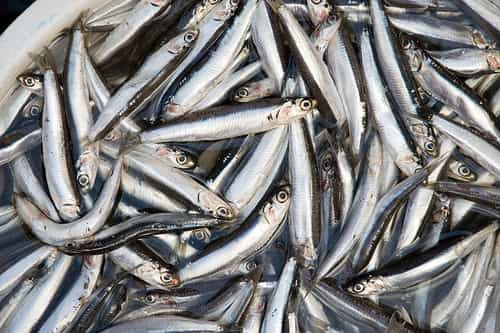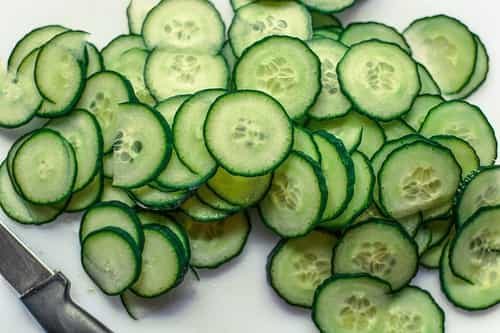Have you ever wondered what makes cucumbers so popular in the world of health and wellness? These unassuming, crunchy vegetables are more than just salad fillers; they pack an impressive range of health benefits that might surprise you. Let’s dive deeper into what cucumbers can do for your body and why adding them to your diet is a choice that’s supported by science.
How Hydrated Are You, Really?
Did you know that cucumbers are about 96% water? This means they are one of the most hydrating foods available, which can be especially beneficial during hot summer months or if you struggle with drinking enough water. Proper hydration is key to maintaining optimal energy levels, regulating body temperature, and even supporting joint health. Eating cucumbers can be a natural, delicious way to help meet your daily hydration needs.
Water Content in Vegetables
| Vegetable | Water Content (%) |
|---|---|
| Cucumber | 96% |
| Carrot | 88% |
| Spinach | 91% |
| Bell Pepper | 92% |
This histogram compares the water content of popular vegetables. Cucumbers lead with 96% water, followed closely by bell peppers, spinach, and carrots.
Can Cucumbers Help You Lose Weight?
The answer is a resounding yes! Cucumbers are low in calories but high in volume, making them ideal for anyone trying to shed a few pounds. One cup of sliced cucumber contains only about 16 calories, and their high water content means they keep you feeling fuller for longer, reducing the urge to snack. For those on a weight-loss journey, cucumbers are a must-have in the diet, providing essential nutrients without unnecessary calories.
Did you know? Consuming foods high in water content can reduce your overall calorie intake. A study from Penn State University found that people who ate water-rich foods such as cucumbers consumed significantly fewer calories throughout the day compared to those who did not (source: Penn State University).
Calories per 100g of Vegetables (per 3.5 oz)
| Vegetable | Calories (per 3.5 oz) |
|---|---|
| Cucumber | 16 kcal |
| Carrot | 41 kcal |
| Spinach | 23 kcal |
| Bell Pepper | 20 kcal |
This histogram compares the calorie content of popular vegetables per 3.5 oz (100g). Cucumbers have the lowest calorie count, making them a great choice for weight management.
What About Nutrients Beyond Hydration?
Cucumbers might not be as nutrient-dense as kale or spinach, but they still pack an impressive amount of vitamins and minerals that are vital for your health. They are a good source of Vitamin K, which plays a role in blood clotting and bone health. Just half a cup of sliced cucumber contains approximately 10% of the daily recommended intake of Vitamin K.
Potassium Content in Vegetables (per 3.5 oz)
| Vegetable | Potassium (mg per 3.5 oz) |
|---|---|
| Cucumber | 147 mg |
| Carrot | 320 mg |
| Spinach | 558 mg |
| Bell Pepper | 175 mg |
This histogram compares the potassium content of popular vegetables per 3.5 oz (100g). Spinach is particularly high in potassium, followed by carrots, bell peppers, and cucumbers.
Cucumbers also contain several antioxidants, including beta-carotene and flavonoids, which help to combat oxidative stress and reduce inflammation. These antioxidants have been linked to a reduced risk of chronic diseases such as heart disease and cancer.
How Do Cucumbers Support Heart Health?
Cucumbers contain potassium, a mineral that’s essential for maintaining healthy blood pressure levels. A diet rich in potassium can help counteract the effects of sodium in the body, which is important for reducing the risk of high blood pressure—a major risk factor for cardiovascular disease. According to the American Heart Association, increasing your potassium intake while reducing sodium can help lower blood pressure, which in turn supports heart health.
Can Eating Cucumbers Improve Your Skin?
If you’ve ever applied cucumber slices to your eyes during a spa treatment, you already know that cucumbers can help reduce puffiness and soothe the skin. But eating cucumbers also benefits your skin from the inside out. Cucumbers are rich in silica, which is important for skin elasticity and can help in keeping your skin supple and hydrated. They also have anti-inflammatory properties that may help reduce redness and skin irritation.
Should You Be Concerned About Digestive Health?
Fiber plays an important role in digestive health, and cucumbers contain both soluble and insoluble fiber. Soluble fiber helps to feed the beneficial bacteria in your gut, while insoluble fiber adds bulk to stool, which can help prevent constipation. Including cucumbers in your daily diet is a simple yet effective way to promote digestive regularity and overall gut health.
Did you know? The peel of a cucumber contains most of its fiber content. To get the maximum digestive benefit, consider eating cucumbers unpeeled (provided they are organic or thoroughly washed).
Are Cucumbers Beneficial for Blood Sugar Management?
For those worried about blood sugar levels, cucumbers might be a helpful addition to your diet. They have a low glycemic index (GI), meaning they won’t cause a spike in blood sugar. Preliminary studies suggest that cucumber extract may even help manage blood sugar levels by influencing carbohydrate metabolism. Though more research is needed, these initial findings are promising for those managing diabetes or insulin resistance.
Vegetables with Low Glycemic Index (GI)
| Vegetable | Glycemic Index (GI) |
|---|---|
| Cucumber | 15 |
| Spinach | 10 |
| Bell Pepper | 12 |
| Carrot | 35 |
This histogram compares the glycemic index of popular vegetables. Cucumbers, spinach, and bell peppers have particularly low GI values, making them ideal for blood sugar control.
How Can You Incorporate Cucumbers into Your Diet?
Incorporating cucumbers into your meals can be both easy and enjoyable. Here are a few ideas:
- Salads: Add cucumber slices to fresh salads for extra crunch and hydration.
- Infused Water: Add cucumber slices to your water for a refreshing twist.
- Snacks: Pair cucumber sticks with hummus for a low-calorie, nutrient-rich snack.
- Sandwiches: Layer cucumber slices into sandwiches or wraps for added freshness.
Nutritional Snapshot: Cucumber vs. Popular Veggies
| Vegetable | Water Content (%) | Calories per 100g | Vitamin K (%DV) | Potassium (mg) |
|---|---|---|---|---|
| Cucumber | 96% | 16 | 10% | 147 |
| Carrot | 88% | 41 | 10% | 320 |
| Bell Pepper | 92% | 20 | 6% | 175 |
| Spinach | 91% | 23 | 460% | 558 |
Editorial Advice
If you’re looking to make a simple yet impactful change to your diet, consider adding more cucumbers. Not only are they refreshing and hydrating, but they also offer a host of health benefits that can improve everything from your heart health to your digestive system. Whether you’re munching on them as a snack or adding them to meals, cucumbers are a low-cost, low-calorie way to support your well-being.









